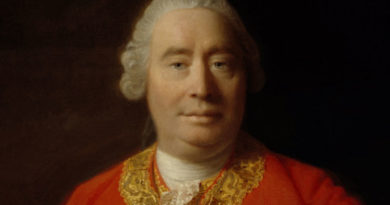Immanuel Kant
Posted on 29 June 2020
Immanuel Kant (1724 – 1804) was a German philosopher who sought to break the impasse between Rationalism and Empiricism.
Kant was born in East Prussia (modern-day parts of Poland, Lithuania and Russia) and had a strict Lutheran upbringing that stressed intense religious devotion, personal humility and a literal interpretation of the Bible).
Accordingly the young Kant received a strict, punitive and disciplinary education that favored Latin and religious instruction over mathematics and science.
After excelling at school, Kant went University of Königsberg in 1740, at the age of 16. Here, he worked as a private tutor and subsequently became a professor in 1770 – along the way developing his own philosophical research.
“Two things fill my mind with ever increasing wonder and awe., the more often and the more intensly the reflection dwells on the: the starry heavens above me and the moral law within me.”
Immanuel Kant
Rationalism Versus Empiricism
“All our knowledge begins with the senses, proceeds then to the understanding, and ends with reason. There is nothing higher than reason.”
Immanuel Kant
As a professor of philosophy Kant was familiar with both the Rationalism of Descartes and Spinoza and the Empiricism of Locke and Hume. The Rationalists believed that the basis for human knowledge came from the mind and the Empiricists believed this knowledge came from the experience of the senses. Kant believed both schools of thought were partly right and also partly wrong.
For Kant, the Rationalists had forgotton the importance of experience and the Empiricists had shut their eyes to the way your mind influences the way you perceive the world.
He argued that knowledge comes from a synthesis of experience (Empiricism) and concepts (Rationalism) – without your senses, you would not become aware of any object, but without understanding and reason you would not be able to form any conception of it.
Kant agreed with Hume that you cannot know what the world is like with certainty, you can only know the world as you know it. Kant makes this distinction as the ‘the thing in itself’ and ‘the thing as it appears to you’.
He began bridging the two schools of thought by philosophizing about time and space.
Time and Space
“Space and time are the framework within which the mind is constrained to construct its experience of reality.”
Immanuel Kant
For Kant time and space belong inside you and are perceptions that come from within. They are not attributes of the physical world. Its these perceptions of time and space that leave an imprint on your mind.
He reasoned that your mind is not just ‘passive wax’ that simply receives sensations from the outside world, rather your mind adapts through time and space to gain knowledge.
Kant argued that whatever you experience, first and foremost is perceived as phenomena in time and space. He called time and space the two ‘forms’ of intuition.
These two ‘forms’ precede every experience. In other words you know before you experience something that we you will perceive it as a phenomena in time and space.
A Chain Reaction of Cause and Effect In The Mind
Kant reasoned that the two ‘forms’ of intuition create a chain reaction of cause and effect that takes place in the mind.
For example, before you go out in the morning, you cannot know what you will see or experience during the day. But you can know that what you see and and experience will will be perceived in happening in time and space. You can moreover be confident that the law of cause and effect will apply, simply because you carry it with you as part of your consciousness.
Imagine a dog in a room. A ball is thrown across the room. What happens? Straight away, the dog chases the ball. Now imagine you in a room. A ball is thrown. What happens? Do you straight away chase the ball? No. You look around to see where the ball has come from. The law of causality is is built into your human makeup. Looking for the cause of the event is hardwired into your thinking.
For Kant, there are two elements that contribute to your knowledge of the world. The first is the external conditions that we cannot know of before we have perceived them through the senses – called the Material of Knowledge.
The second is is the internal condition in you yourself, such as the perception of events as happening in time and space and as a process of conforming to an unbreakable law of causality.
The Universe And The Soul
When it came to the big philosophical questions such as is the universe infinite or do you have an immortal soul, Kant believed there are limits to which they can be answered. As you cannot step outside the universe or take out your soul to look at, there is no adequate sensory information and without this your reasoning becomes blunted.
Kant thought that something lay beyond reason and experience. This was where faith belonged. Whether God existed could never be proved or disproved, but there is something beyond what you can comprehend.
We have certain predispositions as to what exists, and only those things that fit into these predispositions can be said to exist for us.
Towards the end of his life, Kant became increasingly anti-social and bitter over the growing loss of his memory and capacity for work. He became totally blind and finally died 1804.






